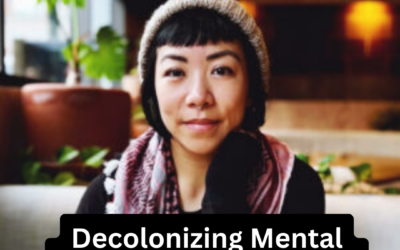Podcast: Play in new window | Download (Duration: 54:29 — 37.7MB)
Subscribe: Apple Podcasts | Spotify | Amazon Music
Early attachment disruption is often the primary contributor to many adult mental health issues. Treating symptoms without addressing the underlying root cause can set up both the therapist and the client, so it’s important we all understand what is happening below the surface.
In this Therapist Uncensored episode, Dr. Daniel Brown joins co-host Sue Marriott to discuss the 3 essential ingredients of effective and efficient treatment for many clinical issues such as anxiety, depression, addiction, PTSD and personality disorders.
We also get to hear take away’s from the 200 child sexual abuse cases he has testified for as an expert witness for the prosecutors and his work at the International War Crimes Tribunal helping them establish a standard of evidence for victims of war atrocities.
From his wealth of knowledge regarding complex trauma and his extensive training in mindfulness and forensic psychology, Dr. Brown brings us deep insight into how treatment from an attachment perspective can lead to significant and lasting healing.
In this episode, TU87, we discuss:
What is the complex trauma profile and what does it actually mean? What is its etiology? You’ll learn how re-constructing complex trauma as a branch off of disorganized attachment can allow for faster and more powerful treatment.
We also discuss:
- Research findings that suggest that complex trauma is really disorganized attachment aggravated by later childhood abuse
- What Dr. Brown has learned through his experience as an expert witness in over 200 cases
- His research on sexual abuse through forensic testing, and how ideas behind the false memory claim and dissociative amnesia permeate
- The three pillars of treatment for attachment disorders (find out more about the three pillars in TU34 with David Elliott here!)
- Treatment on the anxious preoccupied side of the attachment spectrum (red side of the spectrum) and rectifying impaired self-development, chronic levels of anxiety, and chronic compulsive caretaking
Daniel Brown’s Biography:
Daniel Brown, Ph.D. is Associate Clinical Professor of Psychology at Harvard Medical School and has served on the faculty for over 38 years. As a senior meditation master, he’s trained and taught with top Indo-Tibetan Bon & Buddhist lamas for over 48 years, including lineage holders of some of the great schools of Buddhism.
He is an author of 24 books, and winner of the several awards from the American Psychiatric Association and the American Academy of Psychiatry & Law for outstanding contribution to forensic psychiatry.
As a legal expert witness, Dr Brown has testified in over 200 child abuse cases and served as an expert witness for the prosecutors at the International War Crimes Tribunal helping them establish a standard of evidence for victims of war atrocities.
Dr. Brown co-developed The Attachment Project based on the foundations of his and Dr. Elliott’s award-winning book Attachment Disturbances in Adults: Treatment for Comprehensive Repair. Together they developed the Three Pillars treatment method that has garnered praise across the scientific and medical community, and he is a recipient of the 2018 Pierre Janet Writing Award.
Find out more about the Three Pillars treatment method in TU34 with David Elliott here!
Resources to go w/ this podcast listed below:
Bowlby, J. (1977). The making and breaking of affectional bonds. British Journal of Psychiatry, 130, 421-431.
Bowlby, J. (1969/1982) Attachment and Loss: Vol. 1 Attachment. New York, NY: Basic Books.
Brown, D. P. & Elliott, D. S. (2016) Attachment Disturbances in Adults: Treatment for Comprehensive Repair
Fonagy, P. & Bateman, A. W. (2006). Mechanisms of change in mentalization-based treatment of BPD. Journal of Clinical Psychology, 62, 411-430.
George, C., & West, M. L. (2012). The adult attachment projective picture system. New York, NY: Guilford Press.
Liotti, G., Cortina, M., & Farina, B. (2008). Attachment theory and multiple integrated treatments of borderline patients. Journal of the American Academy of Psychoanalysis and Dynamic Psychiatry, 36(2), 295-315.
Become a TU Supporter and get more in-depth content (please):
Many of you have expressed a desire to get more in-depth content and we believe we have found the answer! Become a Patreon member and, depending on level, you can have access to a private feed with deeper content and more access to us, as well as support our ability to continue to provide fresh content to many across the globe that may not otherwise have such free access. Go to Patreon.com/therapistuncensored and sign up today. We would be so grateful for the support!
Join the Conversation
The easiest way to dive in is to like our Facebook – it’s an active page and there is even a private FB community where you can discuss directly with other listeners. Also, we do a bit on Twitter if that’s how you roll! And you can find a couple forays into videos on Youtube if ya can believe that?
Don’t Miss a Podcast!
- Subscribe to Therapist Uncensored on any podcast player, there are TONS but here are links to a few: iTunes, Spotify, Android, Google Podcast If already a subscriber please rate and review.
- You can even listen with your partner or family via Alexa or Google smart speakers…how cool is that?














